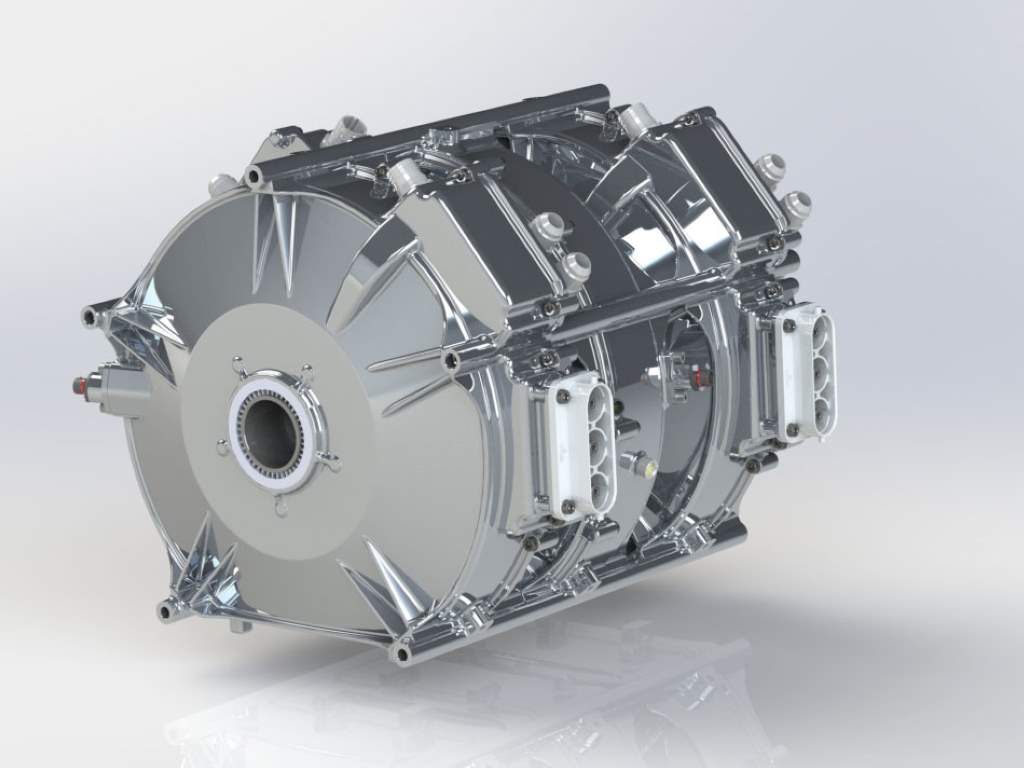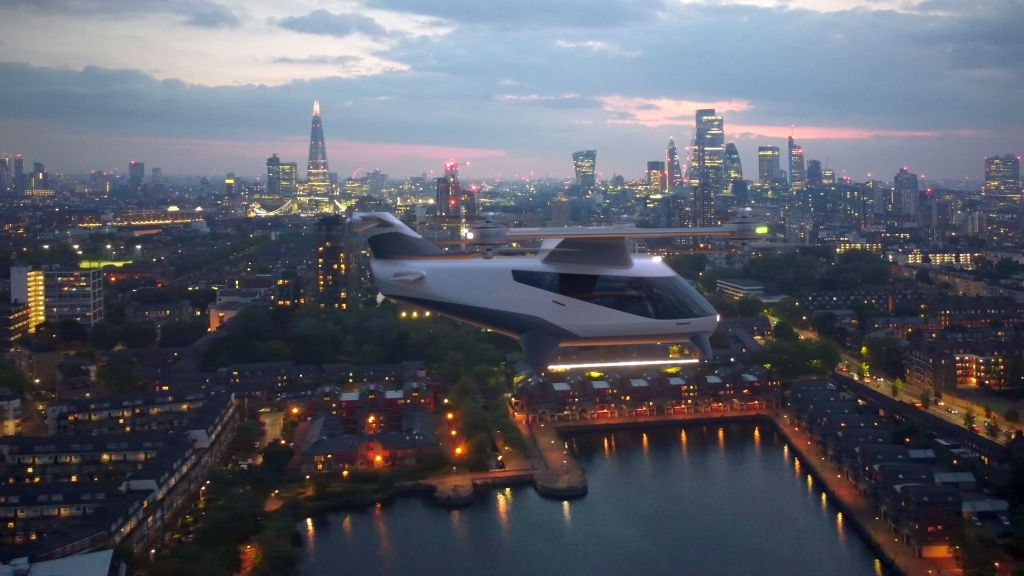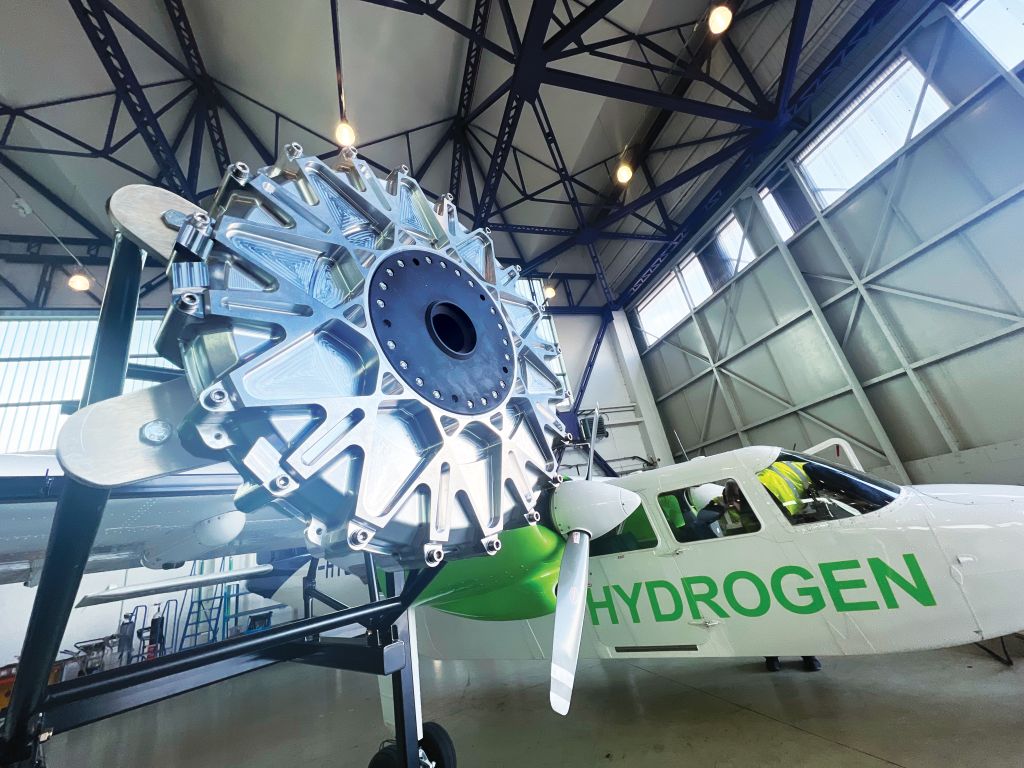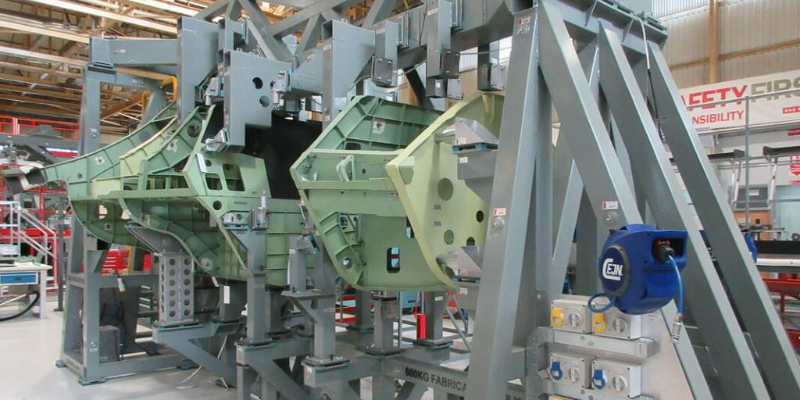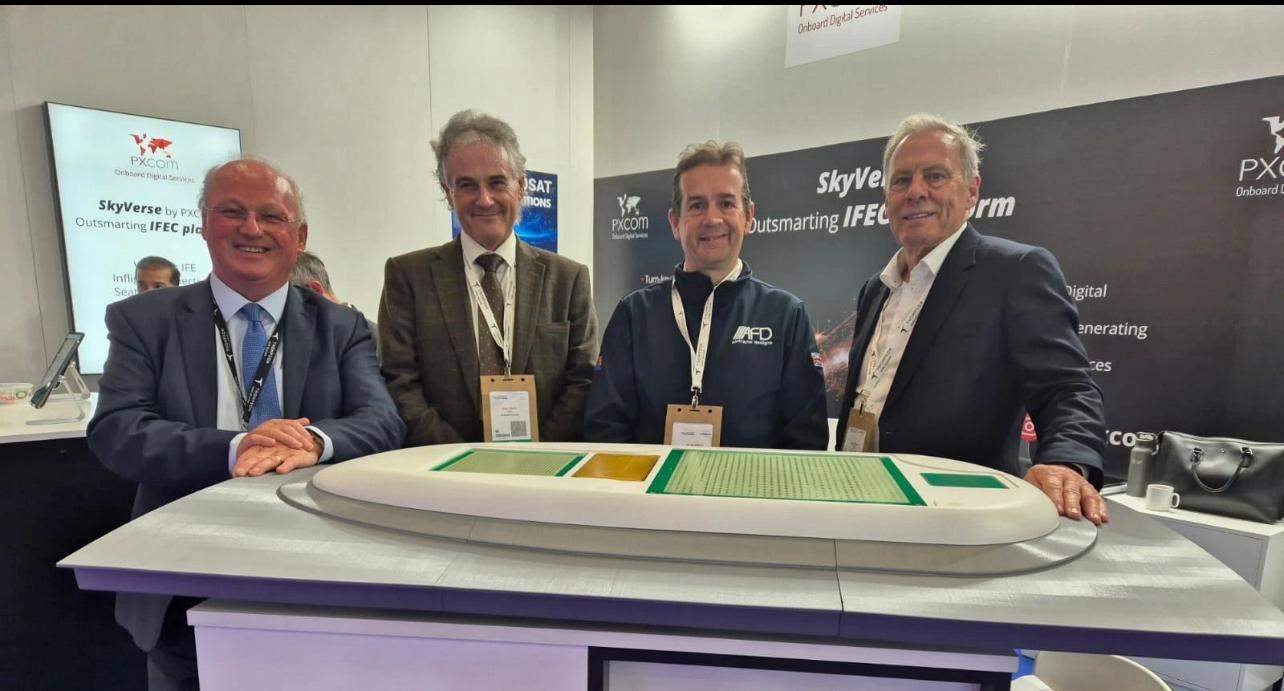
The power of electric flight is here!
9th Jul 2024 | In News | By Mike Richardson
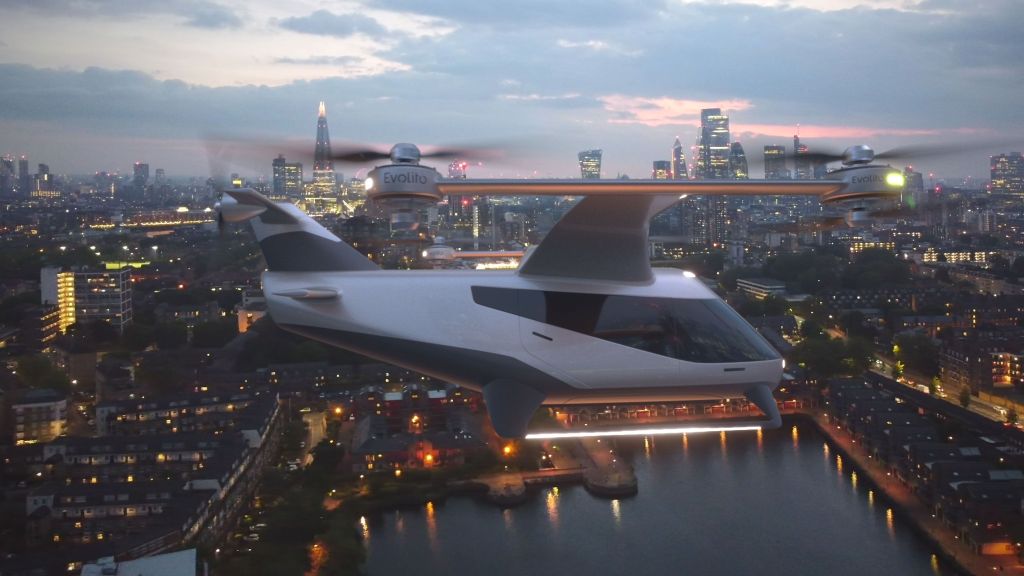
In a Q&A session, Evolito’s chief engineer, Mukesh Patel explains how Evolito is making all-electric flight a reality by offering both geared and direct-drive electric propulsion and battery solutions.
Evolito is a privately-owned company who design and manufacture electric propulsion systems in Oxfordshire for sustainable aerospace applications. With lightweight, high torque dense and rate manufactured axial-flux electric motors at its core, Evolito provides all key subsystems for electric aircraft: axial flux motors, motor controller units and battery systems and management. Its technology is compatible with both fully electric and hybrid systems, across the whole aerospace spectrum, including all vertical lift and fixed wing aircraft types.
Q) Just how far along the path to more electric aircraft is the industry?
Electric and hybrid-electric aviation is so important for a truly greener and more sustainable future for global air travel. Without the positive and timely contribution by the aerospace industry to the global effort to reduce climate altering emissions, it will be highly challenging to meet those emission targets agreed at COP.
One of the main challenges for electric and hybrid-electric aircraft is electric propulsion systems, that are durable, light in mass and serially manufacturable at an affordable price. This is where Evolito’s axial-flux machine really comes into its own.
Until aerospace specific battery energy densities significantly improve, all-electric flight will likely be limited to short duration missions such as in Urban Air Mobility networks operated by eVTOLs. This breakthrough is getting closer. But to start making a more positive impact on emission reductions in longer range missions, the aerospace industry needs more than SAF. We see the emergence of novel hybrid-electric solutions utilising a mix of electric motors/generators and thermal engines, sometimes using lower impact fuels. But also using our electric motors with hydrogen hybrid.
Q) What kinds of battery power performance demands, i.e. lightweighting, miniaturisation, robustness, power management, power densities and re-qualification, are placed on you by today's airframers?
What the airframers are looking at is how all these factors can be combined or improved without losing efficiencies, especially in performance but ultimately each requirement is specific to each customer, their aircraft type and the mission profile.
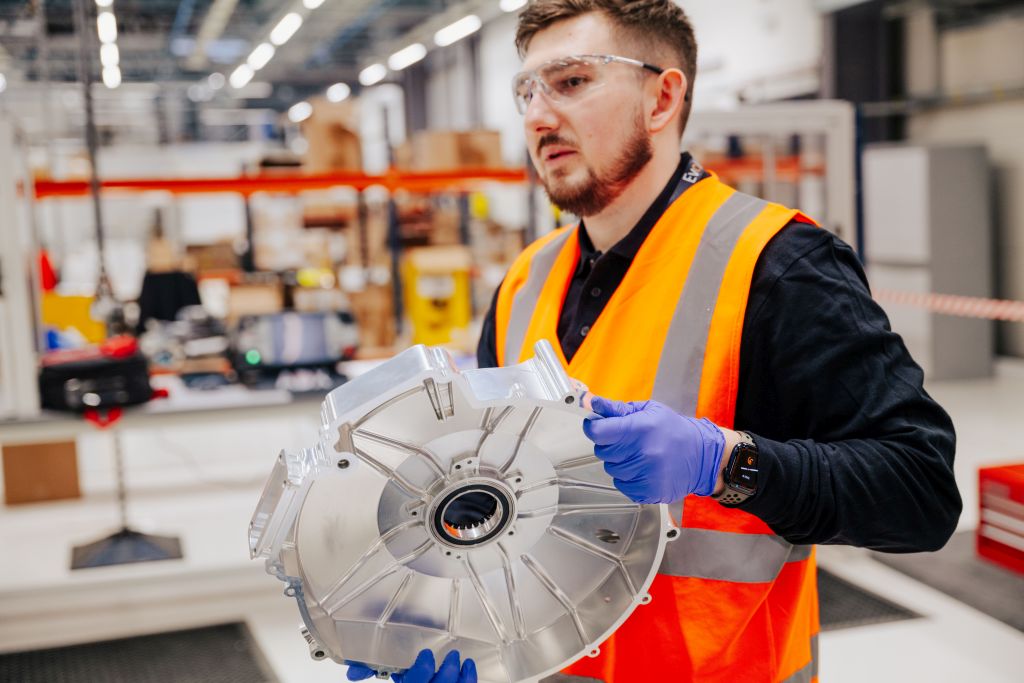
When I first saw the Evolito axial flux motor, I knew it was going to be a real market enabler that would make electric aviation, at scale, a reality. It really is a leap forward. Axial flux motors generate a magnetic field across a much larger radius than radial flux, which means they can generate a lot more torque than the radial flux motors that people are more familiar with. That's how we get the combination of smaller, lighter motors with increased power and torque density. The smaller you can make your propulsion system, the lighter you can make it, which means the aircraft can either go further or carry more payload, as you ultimately require less energy for whatever it is you're trying to do. A much better business case for the operator and more aircraft sales for the airframe customers.
Q) For typically harsh areas of the aircraft, what advances have you made in terms of producing robust components and materials that can withstand higher altitudes and elevated temperatures?
The Evolito axial-flux motor durability is highly well proven in harsh, challenging environments. The technology used in Evolito’s aerospace applications is derived from YASA where it is mass-produced and used, in serial, high volume manufacture by some of the most famous names in automotive. The motor is used in highly challenging hybrid engine and all-electric drive unit environments. Evolito, which is a spin-out from YASA, has invested in state-of-the-art in-house test facilities focused on aerospace requirements, and we’ve recruited a team of experienced engineers for product development for those harsh environments.
We have an array of different test cells used for testing, for example, long-term durability, HALT, HASS and EMI testing as a standard. This involves thermal cycling and vibration testing too, in accordance with standard DO160 and other applicable practices. Our propulsion products are designed to attain the most stringent type certification standards.
Q) What really differentiates and sets you apart from the competition?
Evolito also has motors, controller units and batteries in a single business now, which is a bonus for the aerospace industry. It means that airframers don’t have to source and test different components from different companies and hope that they are as compatible as they sound. We have already done that work with the main components that they are going to need to make electric flight a reality. But, as I have said, a lot of the work now is making everything smaller, lighter, more efficient using our proprietary axial flux motors as the core building-block. We've removed at least 70% of the weight in our motors. The older radial motors give 5 to 7kW a kilogram, whereas ours are getting around 15kW per kilogram. That translates to how many passengers can be carried, or how much cargo can be carried by that aircraft and that propulsion system.
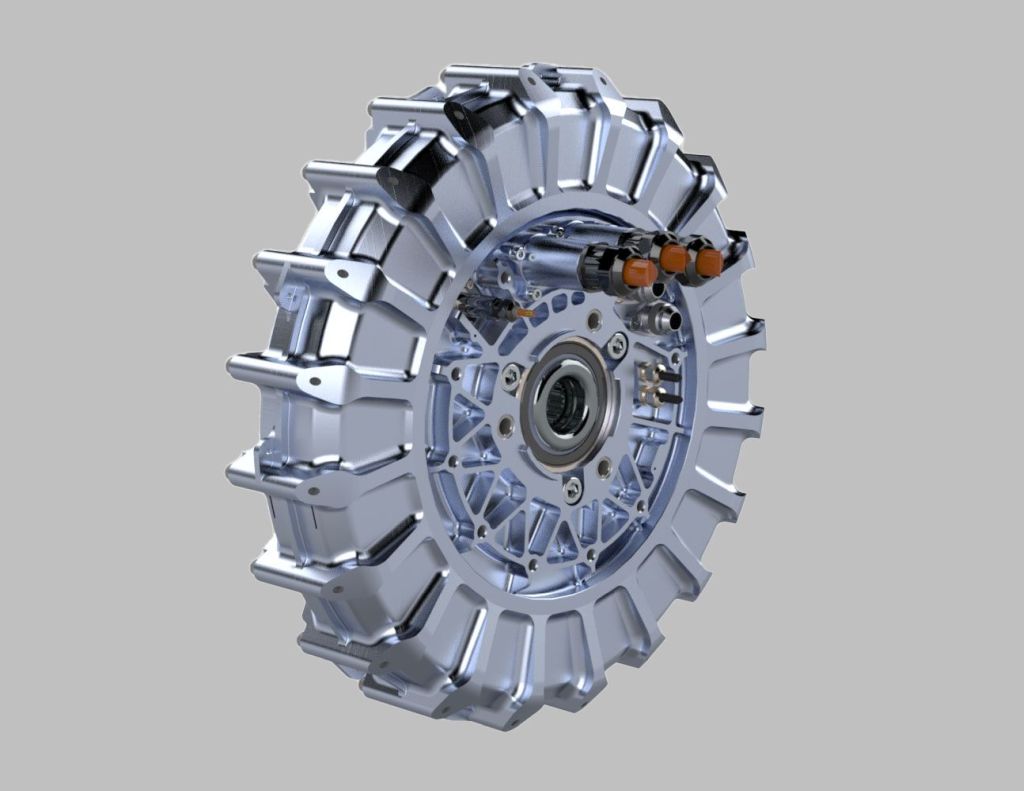
Segmenting the motor also makes it a lot easier to manufacture, which ultimately produces a much safer aircraft. We have nice lightweight, simple pieces which can be manufactured and handled easily. This makes the process simpler, more reliable and, most importantly, easier to repeat. This ability to repeat processes precisely and reliably is what leads to the ability for mass production of electric-powered aircraft, which is the aim after all. It is about control in the construction of our components, being able to replicate the motors perfectly each time. The first order of business is that our product must meet the highest level of safety. That's what we do, and we'll never compromise on that.
Q) Finally, where do you see the biggest business challenge coming from this year?
The biggest and most important consideration for the industry is safety, which is of course paramount. After that, the challenge resides in building an aircraft that is powerful enough, and lightweight enough to achieve thrust and range of travel.
In addition to lightness and safety aviation’s shift to electrification also depends on the availability of power and control systems that can reliably deliver the required peak power and performance characteristics to meet core industry mission profiles, such as those demanded by eVTOL and fixed wing applications, whilst also meeting compliance criteria and emerging safety and quality standards - but also cost being competitive. And then, of course, to implement this entirely new market we need a pipeline of talented engineers!
Evolito will be exhibiting its full propulsion solutions at the Farnborough Airshow in hall 1, stand 107.
Consider a free digital subscription
If you find this article informative, consider subscribing digitally to Aerospace Manufacturing for free. Keep up to date with the latest industry news in your inbox as well as being the first to receive our magazine in digital form.


